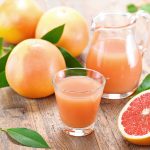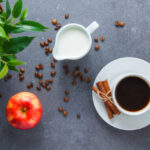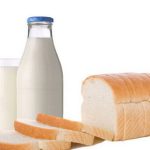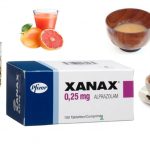List Of Foods To Avoid When Taking Colchicine
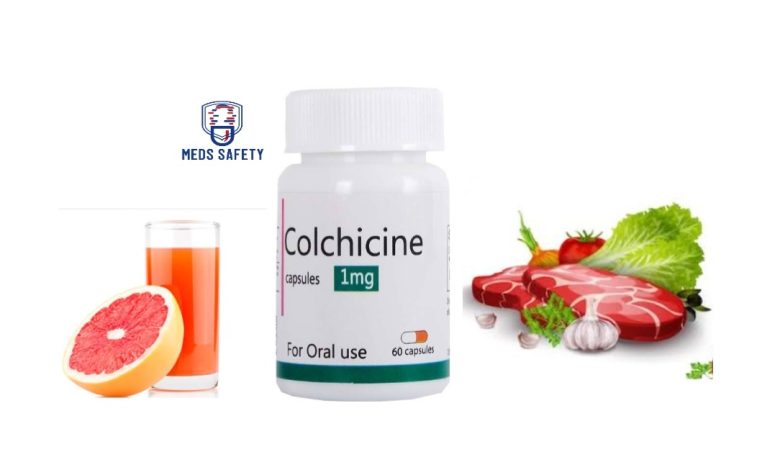
Colchicine is a medication that is primarily used to treat gout, a type of arthritis caused by the buildup of uric acid crystals in the joints. It works by reducing inflammation and relieving pain associated with gout attacks. Colchicine can also be prescribed for other conditions, such as familial Mediterranean fever and Behçet’s disease.
Colchicine is available under various brand names, some of which include:
1. Colcrys: This is the most well-known brand of colchicine in the United States. It is approved by the U.S. Food and Drug Administration (FDA) for the treatment of acute gout and familial Mediterranean fever.
2. Mitigare: Another brand of colchicine approved by the FDA for the treatment of gout flares. Mitigare is also used for the prevention of gout attacks.
3. Colgout: This brand is available in some countries outside of the United States. It is used for the treatment and prevention of gout attacks.
While colchicine effectively reduces pain and inflammation associated with gout attacks, it is important to be aware of potential interactions between the medication and certain foods. In this comprehensive guide, we will explore the list of foods to avoid when taking colchicine to ensure its optimal efficacy and minimize any potential adverse effects.
How Colchicine Works
Colchicine works by interfering with the normal function of white blood cells and certain inflammatory processes in the body. Here’s a simplified explanation of how it works:
1. Inhibition of microtubule formation: Colchicine binds to a protein called tubulin, which is a building block for microtubules. Microtubules are involved in various cellular processes, including cell division and intracellular transport. By binding to tubulin, colchicine disrupts the formation of microtubules, leading to the inhibition of certain cellular functions.
2. Suppression of inflammatory response: Colchicine inhibits the migration of white blood cells (specifically neutrophils) into inflamed tissues. Neutrophils play a crucial role in the inflammatory response by releasing substances that cause pain, redness, and swelling. By preventing their migration, colchicine helps reduce inflammation associated with conditions like gout.
3. Modulation of the immune system: Colchicine also affects the immune system by suppressing the activity of certain immune cells, including neutrophils, monocytes, and macrophages. This modulation of immune cell activity contributes to the anti-inflammatory effects of colchicine.
List of Foods to Avoid When Taking Colchicine
The following list of foods should be avoided when taking colchicine to ensure its optimal efficacy and minimize any potential adverse effects:
1. Grapefruit and Grapefruit Juice: Grapefruit and its juice contain compounds that can interfere with the liver’s ability to metabolize medications, including colchicine. This interference can lead to increased levels of colchicine in the body, potentially increasing the risk of side effects. It is advisable to completely avoid grapefruit and grapefruit juice while taking colchicine.
2. Alcohol: Consuming alcohol, particularly in excessive amounts, can interfere with the effectiveness of colchicine and may increase the likelihood of experiencing side effects. Alcohol can also contribute to dehydration, which can trigger gout attacks. Therefore, it is recommended to limit or avoid alcohol consumption while taking colchicine. If you choose to consume alcohol, moderation is key, and it is best to consult with your healthcare provider for specific recommendations.
3. High-Purine Foods: Gout is a condition caused by the accumulation of uric acid, which forms when the body breaks down purines. Consuming foods high in purines can contribute to higher levels of uric acid in the body and trigger gout attacks. While it is not necessary to completely eliminate all high-purine foods from your diet, limiting or avoiding them can help manage gout symptoms. Some examples of high-purine foods to limit or avoid include:
• Organ meats: Liver, kidneys, and sweetbreads.
• Certain seafood: Anchovies, sardines, mussels, herring, and scallops.
• Red meat: Beef, lamb, and pork.
• Certain vegetables: Asparagus, spinach, mushrooms, and cauliflower.
It’s important to note that the impact of these vegetables varies among individuals, and some people may tolerate them well. Consulting with a healthcare provider or a registered dietitian can provide personalized guidance on incorporating these vegetables into your diet.
4. Fructose-rich Foods and Beverages: Foods and beverages high in fructose, a type of sugar, have been associated with an increased risk of gout attacks. Fructose can increase the production of uric acid in the body. Therefore, it is advisable to limit or avoid foods and beverages that are high in fructose, such as sugary drinks, fruit juices, and foods with added sugars. Be mindful of high-fructose corn syrup, a common ingredient in many processed foods and beverages.
5. Certain Vegetables: While vegetables are generally beneficial for overall health, some vegetables have moderate to high levels of purines and may contribute to gout symptoms in some individuals. These include asparagus, spinach, mushrooms, and cauliflower. However, it’s important to note that the impact of these vegetables varies among individuals, and some may tolerate them well. Monitoring your body’s response to these vegetables and consulting with a healthcare provider can help determine if they should be limited or avoided.
6. Yeast Extracts and Anchovies: Certain condiments and sauces, such as yeast extracts (e.g., Marmite, Vegemite) and anchovies, have high levels of purines. These ingredients are commonly found in savory dishes, gravies, and some processed foods. It is advisable to read labels carefully and limit or avoid foods that contain these ingredients to manage purine intake.
How to Reduce the Risk of Drug-Food Interaction While Taking Colchicine
Reducing the risk of drug-food interactions while taking colchicine is important to ensure the medication’s effectiveness and minimize the potential for adverse effects. Here are some tips to help you navigate and reduce the risk of drug-food interactions:
1. Follow healthcare provider’s instructions: Always follow your healthcare provider’s instructions regarding the use of colchicine and any dietary restrictions or recommendations specific to your situation. They will consider your medical history, current medications, and individual needs when providing guidance.
2. Read medication labels: Read the medication labels and package inserts of colchicine and any other medications you are taking. Look for any specific instructions or warnings related to food interactions. If you have any questions or concerns, consult your pharmacist or healthcare provider for clarification.
3. Communicate with your healthcare provider: Inform your healthcare provider about all the medications you are taking, including prescription medications, over-the-counter drugs, and dietary supplements. This will help them identify potential interactions and make appropriate recommendations. Also, inform them about any significant changes in your diet or alcohol consumption.
4. Avoid grapefruit and grapefruit juice: As stated above grapefruit and its juice can interfere with the metabolism of colchicine, leading to increased levels of the medication in your body. It is advisable to completely avoid grapefruit and grapefruit juice while taking colchicine.
5. Limit alcohol consumption: Excessive alcohol consumption can interfere with the effectiveness of colchicine and increase the risk of side effects. It is recommended to limit or avoid alcohol while taking colchicine. If you choose to drink alcohol, do so in moderation and consult your healthcare provider for specific recommendations.
6. Be cautious with high-purine foods: While it is not necessary to completely eliminate high-purine foods, it may be beneficial to limit their consumption. Monitor your intake of organ meats, certain seafood (such as anchovies and mussels), red meat, and purine-rich vegetables. However, consult with your healthcare provider or a registered dietitian to determine the appropriate level of restriction based on your individual needs.
7. Moderate fructose-rich foods: Foods and beverages high in fructose have been associated with an increased risk of gout attacks. Limit your intake of sugary drinks, fruit juices, and foods with added sugars. Be mindful of high-fructose corn syrup, which is commonly found in processed foods and beverages.
8. Stay hydrated: Adequate hydration is crucial for managing gout and minimizing the risk of gout attacks. Drink plenty of water throughout the day to help flush out uric acid from your body.
9. Consult a registered dietitian: Consider consulting a registered dietitian who specializes in gout or arthritis to develop a personalized dietary plan. They can provide guidance on maintaining a healthy diet, managing purine intake, and minimizing potential interactions with colchicine.
Remember, the severity of food interactions can vary among individuals, and it’s important to consult with your healthcare provider for personalized advice based on your specific circumstances. By staying informed, communicating effectively, and making mindful dietary choices, you can reduce the risk of drug-food interactions while taking colchicine and effectively manage your gout symptoms.
Conclusion
When taking colchicine for the management of gout, it is essential to be mindful of the foods you consume. Avoiding or limiting foods and beverages that can interact with colchicine, exacerbate gout symptoms, or hinder its effectiveness can help ensure optimal treatment outcomes. Remember to consult with your healthcare provider or a registered dietitian for personalized advice and guidance on maintaining a healthy diet while taking colchicine. By making informed choices, you can effectively manage gout symptoms and promote overall well-being.

